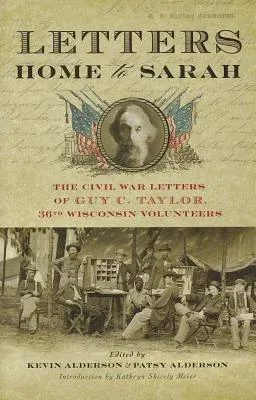Forgotten for more than a century in an old cardboard box, these are the
letters of Guy Carlton Taylor, a farmer who served in the Thirty-Sixth
Wisconsin Volunteer Infantry Regiment in the American Civil War. From
March 23, 1864, to July 14, 1865, Taylor wrote 165 letters home to his
wife Sarah and their son Charley.
From the initial mustering and training of his regiment at Camp Randall
in Wisconsin, through the siege of Petersburg in Virginia, General Lee's
surrender at Appomattox, and the postwar Grand Review of the Armies
parade in Washington, D.C., Taylor conveys in vivid detail his own
experiences and emotions and shows himself a keen observer of all that
is passing around him. While at war, he contracts measles, pneumonia,
and malaria, and he writes about the hospitals, treatments, and sanitary
conditions that he and his comrades endured during the war. Amidst the
descriptions of soldiering, Taylor's letters to Sarah are threaded with
the concerns of a young married couple separated by war but still coping
together with childrearing and financial matters. The letters show, too,
Taylor's transformation from a lonely and somewhat disgruntled
infantryman to a thoughtful commentator on the greater ideals of the
war.
This remarkable trove of letters, which had been left in the attic of
Taylor's former home in Cashton, Wisconsin, was discovered by local
historian Kevin Alderson at a household auction. Recognizing them for
the treasure they are, Alderson bought the letters and, aided by his
wife Patsy, painstakingly transcribed the letters and researched
Taylor's story in Wisconsin and at historical sites of the Civil War.
The Aldersons' preface and notes are augmented by an introduction by
Civil War historian Kathryn Shively Meier, and the book includes
photographs, maps, and illustrations related to Guy Taylor's life and
letters.

